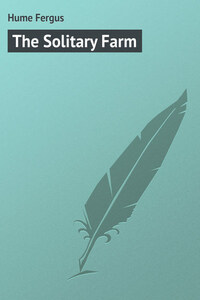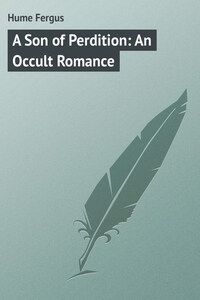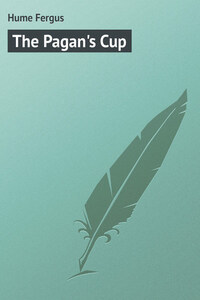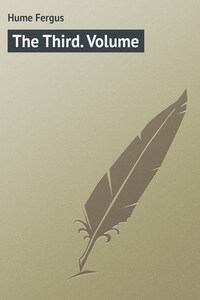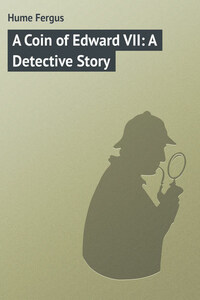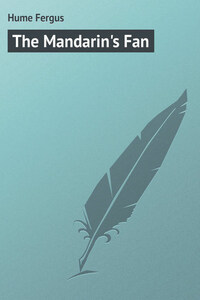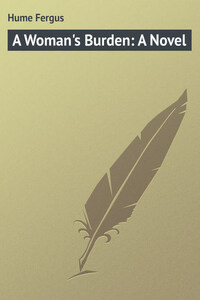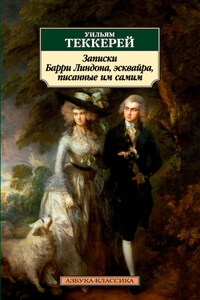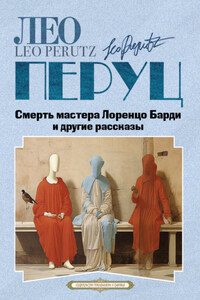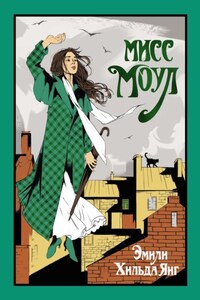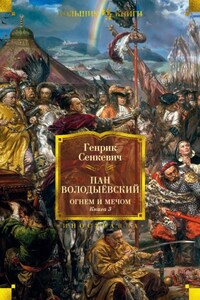CHAPTER I
THE DOMAIN OF CERES
"S' y' want t' merry m' gel, Bella!" remarked Captain Huxham, rubbing his stout knees slowly, and repeating the exact words of the clerical suitor. "S' thet she may be yer handmaiden, an' yer spouse, and yer sealed fountain, es y' put it in yer flowery pulpit lingo. Jus' so! Jus' so!" and shifting the quid which bulged his weather-beaten cheek, he stared with hard blue eyes. "Jus' so, Mr. Pence!"
The young minister and the elderly skipper discussed the subject of marriage in a shabby antique room of small size, which had the appearance of having been used to more aristocratic company. The dark-oak panelled walls, the grotesquely-carved ceiling-beams, the Dutch-tiled fire-place, with its ungainly brass dogs, and the deep slanting embrasure of the lozenge-paned casement, suggested Georgian beaux and belles dancing buckram minutes, or at least hard-riding country squires plotting Jacobite restoration. But these happenings were in the long-ago, but this stately Essex manor-house had declined woefully from its high estate, and now sheltered a rough and ready mariner, who camped, rather than dwelt, under its roof.
Captain Huxham, seated on the broad, low window-sill, thrust his hands into the pockets of his brass-buttoned pea-jacket, and swung his short, sturdy legs, which were enveloped in wide blue-cloth trousers. He was a squat man, with lengthy arms and aggressively square shoulders, and his large, flat face was as the winter sun for redness. Clean-shaven, save for a fringe of white hair which curved under his stubborn chin from one large ear to the other, his tough skin was seamed with innumerable wrinkles, accumulating particularly thickly about his eyes. He had gold rings in his ears, and plenteous grey hair hung like seaweed from under a peaked cap, pushed back from his lined forehead. He looked what he truly was – a rough, uneducated, imperious old sea-dog, whose knowledge of strong drink and stronger language was only exceeded by his strenuous grip of the purse which held the savings of many rapacious years. In this romantic room he looked entirely out of place. Nevertheless it was his own property, and while considering his answer to Mr. Pence, he examined it mechanically.
To the left he beheld a large open fire-place, which gaped under an ornate oak mantel-piece, carved with the crest and motto of the dispossessed family. A door appeared on the right, leading to the entrance hall, and this also was elaborately carved with wreaths of fruit and flowers, and with fat, foolish Cupids, entangled in knots of ribbon. The fourth wall was unbroken, and faced the window, but against it stood a common deal table covered incongruously with an embroidered Indian cloth. Above this, and leaning forward, was a round convex mirror, surmounted by a Napoleonic eagle. This was flanked on one side by an oilskin coat and a sou'-wester, and on the other by a sextant and a long brass telescope. A Louis Quinze sofa, with a gilt frame, and covered with faded brocade, fitted into the space between the fire-place and the casement. In the opposite corner, with its back to the outer wall, stood a large modern office-desk of mahogany, with a flexible curved lid, which was drawn down and fastened, because a visitor was in the room. Captain Huxham never received anyone in his sanctum unless he first assured himself that the desk was closed, and a small, green-painted safe near it fast-locked.
There were three or four rush-bottomed chairs, which looked plebeian even on the dusty, uncarpeted floor. On the mantel-shelf stood a lyre-shaped clock, bearing the sun symbol of Louis XIV.; several cheap and gaudy vases, and many fantastic shells picked up on South Sea beaches. Here and there were Japanese curios, Polynesian mats and war weapons; uncouth Chinese idols, stuffed birds, Indian ivory carvings, photographs and paintings of various ships, and all the flotsam and jetsam which collects in a sailor's sea-chest during endless voyages. The deal table was littered with old magazines, yellow-backed novels, and navigation books with ragged covers; while the fire-place was a species of dust-bin for matches, cigar-ends, torn papers, orange peel, and such like. Everywhere the dust lay thick. It was an odd room – at once sumptuous and dingy, markedly chaotic, yet orderly in an untidy way. It reflected more or less the mind of its present owner, who, as has been before remarked, camped, rather than lived, amidst his surroundings. In the same way do Eastern nomads house in the ruined palaces of kings.
Silas Pence, who was the minister of the Little Bethel Chapel in Marshely village, curled his long thin legs under his chair and looked anxiously at his meditative host. That portion of the light from the casement not intercepted by Huxham's bulky figure, revealed a lean, eager face, framed in sparse, fair hair, parted in the centre and falling untidily on the coat collar. The young preacher's features were sharply defined and somewhat mean, while a short and scanty beard scarcely concealed his sensitive mouth. His forehead was lofty, his chin weak, and his grey eyes glittered in a strange, fanatical fashion. There were exceptional possibilities both for good and evil in that pale countenance, and it could be guessed that environment would have much to do with the development of such possibilities. Mr. Pence was arrayed in a tightly-fitting frock coat and loose trousers, both of worn broadcloth. He wore also a low collar with a white tie, bow-fashion, white socks, and low-heeled shoes, and every part of his attire, although neat and well-brushed and well-mended, revealed dire poverty. On the whole, he had the rapt ascetic gaze of a mediæval saint, and a monkish robe would have suited him better than his semi-ecclesiastical garb as a Non-conformist preacher.
